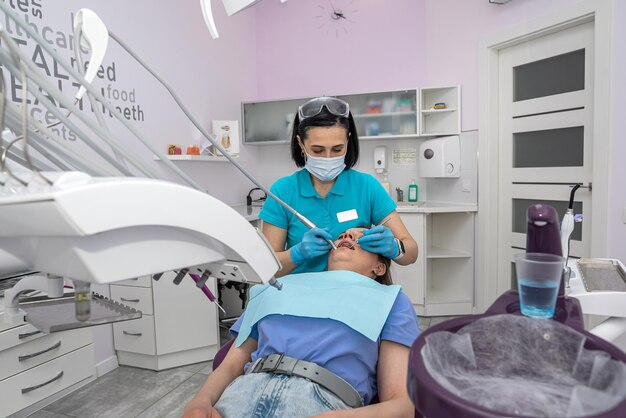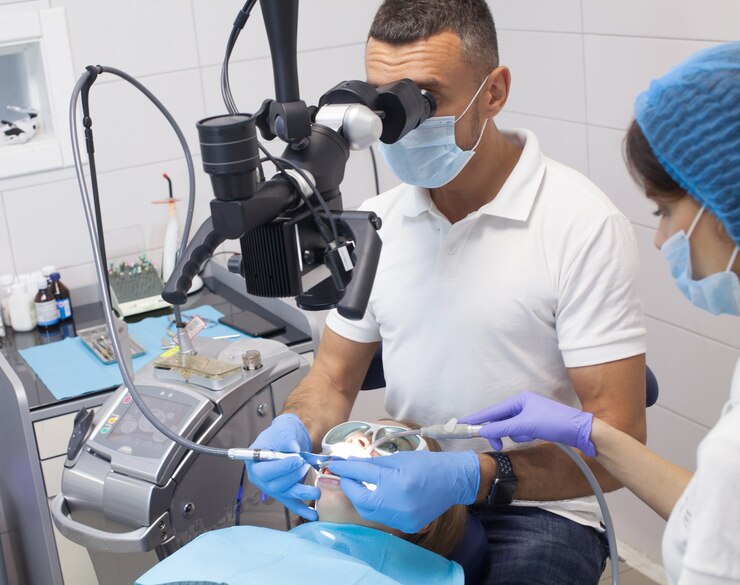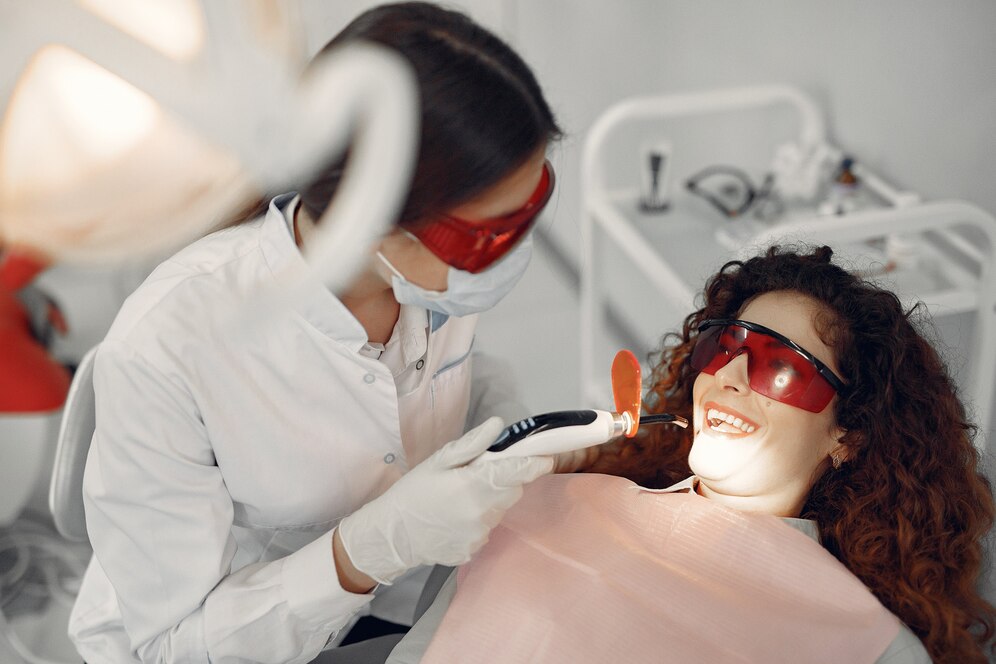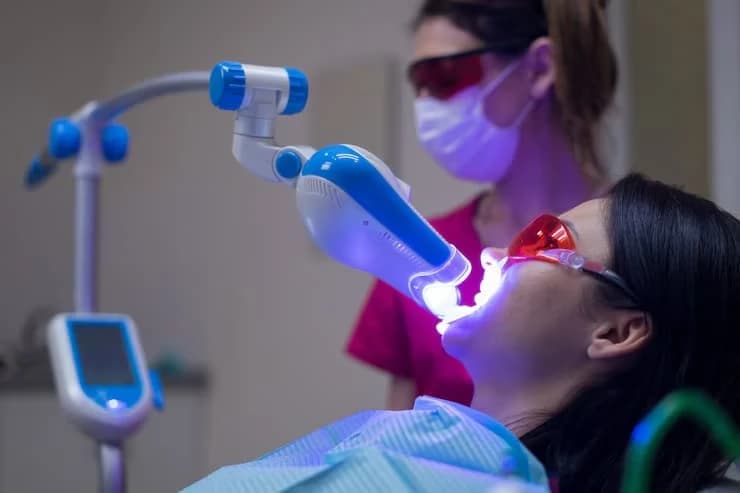 Smart Link Building – DA 50+ Backlinks with Fast Indexing!
Smart Link Building – DA 50+ Backlinks with Fast Indexing!
A Look at Ozone Therapy in London Clinics
Written by jeffreygrayson » Updated on: July 02nd, 2025

Ozone therapy is steadily gaining popularity in holistic and integrative healthcare, with many clinics in London now offering this innovative treatment. Known for its anti-inflammatory, antibacterial and detoxifying properties, ozone therapy is attracting interest from individuals seeking alternative or complementary approaches to health management. This article delves into what ozone therapy involves, its potential benefits, and how it is being integrated into treatment plans at clinics across the capital. Whether you're new to the concept or exploring options for wellness support, understanding ozone therapy in London can help guide your decision.
What Is Ozone Therapy?
Ozone therapy involves the medical use of ozone gas, a molecule made up of three oxygen atoms. While ozone is often discussed in the context of the environment, it has also been used for decades in healthcare settings. Medical-grade ozone is produced by passing pure oxygen through a controlled electrical discharge, generating a gas with powerful oxidative properties.
In clinical settings, ozone can be applied in several ways, such as:
1. Autohemotherapy: A small amount of the patient’s blood is drawn, infused with ozone, and reintroduced into the body.
2. Rectal or vaginal insufflation: Ozone gas is introduced into the body via a catheter.
3. Topical application: Ozone-infused oils or creams are used on the skin.
4. Ozone sauna: Ozone is delivered through the skin via steam therapy.
London clinics are increasingly using these techniques in a safe and regulated manner, offering tailored therapies to meet individual patient needs.
Why Choose Ozone Therapy?
Interest in ozone therapy in London stems from its broad spectrum of potential health applications. Supporters claim it may help with conditions ranging from chronic infections and fatigue to arthritis, autoimmune disorders and even post-viral syndromes.
Key potential benefits include:
Boosting Immune Function: Ozone is believed to stimulate the body’s natural defences, making it potentially beneficial for individuals with weakened immunity.
Anti-Inflammatory Effects: Ozone may reduce inflammation by modulating the immune response, which can be helpful in conditions such as joint pain and skin disorders.
Antimicrobial Properties: It is known to kill bacteria, viruses, and fungi, making it suitable for those prone to infections or battling microbial imbalances.
Detoxification Support: Ozone may improve cellular metabolism and oxygen efficiency, helping the body process toxins more effectively.
It's important to note that while ozone therapy has shown promise in many anecdotal and early scientific reports, more large-scale studies are needed to confirm its efficacy and establish consistent protocols. Always consult a qualified practitioner before starting any treatment.

What to Expect in a London Clinic
When considering ozone therapy in London, the first step is to schedule a consultation with a practitioner trained in the procedure. A reputable clinic will assess your medical history, current health concerns, and goals for therapy.
Many clinics offering ozone therapy are integrative health centres that blend conventional medicine with complementary approaches. Practitioners often include GPs, naturopaths, osteopaths or functional medicine specialists.
During your visit, you may undergo an initial blood test or diagnostic assessment to determine whether ozone therapy is appropriate. The actual procedure is usually quick and minimally invasive, particularly in the case of autohemotherapy or insufflation. Most patients report feeling energised or relaxed after treatment, although reactions can vary.
Safety and Regulation
Medical ozone must be administered carefully and only by trained professionals. In the UK, ozone therapy is considered a complementary treatment and is not yet regulated under standard NHS protocols. However, many private clinics in London maintain rigorous standards to ensure patient safety.
When selecting a clinic, look for the following:
1. Practitioners with certified training in ozone therapy
2. Clinics with a clear safety protocol and informed consent process
3. Use of medical-grade ozone generators
4. Clean, sterile equipment and a clinical setting
Ask questions about the practitioner’s experience, the conditions they commonly treat, and how ozone fits into broader treatment plans. Transparency and professionalism are essential indicators of a quality provider.
Popular Conditions Treated with Ozone Therapy in London
Ozone therapy is used to support a variety of health conditions, often as part of a wider integrative treatment strategy. ozone therapy in london
These may include:
1. Chronic Fatigue Syndrome (CFS) and Fibromyalgia: Aimed at improving energy metabolism and reducing inflammation.
2. Lyme Disease and Co-Infections: Used to support detoxification and reduce bacterial load.
3. Autoimmune Conditions: May assist in modulating immune response and decreasing symptom flares.
4. Arthritis and Joint Pain: Targets inflammation and may aid in mobility and pain reduction.
5. Skin Issues: From eczema to acne, topical ozone applications are used in dermatological care.
6. Post-COVID Recovery: Some clinics are using ozone to help address lingering symptoms and inflammation after viral illness.
While outcomes vary between individuals, many patients report improvements in energy, clarity, sleep, and symptom severity over time.
How to Find a Trusted Ozone Therapy Provider in London
Choosing the right clinic is crucial. A simple search for “ozone therapy in London” will yield numerous options, but it’s worth doing your homework. Look for practices with verified reviews, professional memberships (such as the International Scientific Committee of Ozone Therapy – ISCO3), and clinics that explain their approach in detail on their website.
Word of mouth, patient testimonials, and GP referrals can also guide you toward reputable providers. Some clinics offer free discovery calls or detailed consultations before any commitment, allowing you to ask questions and assess comfort levels.
Additionally, you may want to consider whether the clinic offers other supportive therapies such as vitamin infusions, infrared sauna, or nutritional guidance to complement your treatment.
The Future of Ozone Therapy in London
As interest in holistic health and functional medicine grows, ozone therapy is likely to become a more prominent part of integrative treatment options in the UK. With increasing awareness and patient demand, more London clinics are investing in training, equipment, and evidence-based approaches to broaden access to this therapy.
Research into the use of ozone in chronic disease, antimicrobial resistance, and recovery from long-term illness is ongoing. While regulatory clarity is still evolving, patient-driven outcomes are helping to build momentum behind this emerging treatment.
Whether you’re exploring ozone therapy for specific symptoms or seeking to enhance overall well-being, London’s expanding network of clinics makes it easier than ever to access qualified care and up-to-date information.
Note: IndiBlogHub features both user-submitted and editorial content. We do not verify third-party contributions. Read our Disclaimer and Privacy Policyfor details.
Copyright © 2019-2025 IndiBlogHub.com. All rights reserved. Hosted on DigitalOcean for fast, reliable performance.















